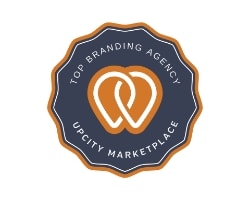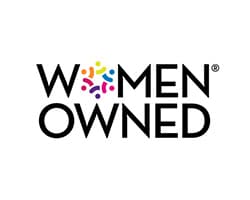In today’s fluid and diverse market, there is a huge focus on customer loyalty as companies discover that it costs less money to keep their current customers than it does to find new ones. A customer’s loyalty to a brand or company is tested every day on social media, online product reviews, and news stories of a company’s social responsibility, or absence of it.
In this blog article, we examine how to best utilize your brand values to drive 100 percent customer loyalty. Brand values must be clear, well-researched, consistent, and trustworthy.
- Be Clear and Focused with Your Values
The first step toward customer loyalty is to have concrete values that serve as the foundation for the brand or company’s success.
In her article How to Use Brand Values to Drive Unwavering Customer Trust and Commitment, Lorraine Carter at Irish Marketing Company Persona Design, explains how clear and focused brand values should be the roadmap for future decision making. Choosing a company’s brand values is not a decision that should be taken lightly, and brand values should not be chosen simply because they are trendy.
Superficial and vague brand values will be problematic when tough decisions need to be made. It’s important to take the time to carefully consider the brand values so there is a clear stance on the issues they address. “Brand values are no different to human values. They guide what you will do and won’t do as a brand. Brand values are the pillar that the brand is built on even before you have a product or service,” Carter writes.
Carter suggests that when developing brand values, business professionals should first think about what is important to them and review that list. Then they should think about what they absolutely will not stand for, and then focus on the brand value that is the opposite of that. It’s important that these decisions are made early on before issues arise. Business professionals who appear to compromise their brand values lose customer trust and customer loyalty.
In her article, Carter lists types of brand values:
- Core values: These are the heart of the brand and what sets it apart from other brands
- Aspirational values: These are related to the company’s goals. These are usually developed when the company is making changes or introducing new products.
- Permission-to-play values: These are different from core values because every business must agree to these values to do business.
- Accidental values: These are based on the values of the company’s employees and it’s important to make sure these don’t conflict with the company’s core values. When the employees’ values do not match the company’s core values, this impacts the consistency of the brand values and decreases customer loyalty.
- Do Your Research
After carefully establishing your brand values, it’s important to do some research on your target customers in the quest for 100 percent customer loyalty.
This includes researching your target audience and what they want as well as researching your customers’ values. This is related to our last blog post, 9 Tips for Creating a Memorable Brand in 2021 and creating a buyer persona. Having an in-depth understanding of your customers is as important as establishing solid brand values. Customer research can be done by soliciting input directly from customers whether on social media, other online platforms, over the phone, or in-person.
A thorough research on your target customers includes researching these customers’ personal values. Carter describes the connection between brand values and customers’ values as a love connection. She explains how customers may be interested in a product, but they will not complete the purchase unless they feel safe knowing their personal values and the brand values are in sync.
When these values are in sync, consumers will continue to purchase from a business. A 2019 Edelman Trust Barometer Special Report shows that customer loyalty is tied to brand trust, which includes both the product and the company. This study was conducted across Brazil, China, France, Germany, India, Japan, the United Kingdom, and the United States. Seventy-two percent of those surveyed said they will not purchase from a company if their personal values do not match the brand values.
- Be Consistent with Your Values and What You Deliver
Once you have established your concrete values and learned about what your customers value when making purchasing decisions, it’s important to be consistent in every step of the process to obtain 100 percent customer loyalty. It’s not just the brand values that need to be consistent; it’s the whole buying process. Marketing executives stress the consistent quality and excellent customer service drive loyalty. Consumers need to see that they will repeatedly get quality products and services from the brand. In an article for socialnomics.net, marketing blogger Ariana Smith writes that “Customers rely on convenience, so be sure that the company will deliver on its promises every time. Under-promising and over-delivering is an excellent strategy of developing brand loyalty.”
In today’s world, large companies are called upon to be socially responsible. In the Edelman report, 81 percent of those surveyed said that they must trust the brand to do what is right. Fifty-three percent said that every brand should be involved in at least one social issue. With this mindset and continuous news stories of companies failing to be socially responsible, many business leaders are shifting their brand values.
However, these changes may not be impactful if there is a lack of consistency. Forbes Communications Council Member Sylvie Tonco talks about the importance of companies being able to put into action their brand values of social responsibility and not just jumping on the bandwagon. She uses the example of how ice cream brand Ben and Jerry’s has always had a consistent brand value of social justice even before it was trendy. Customers may view Ben and Jerry’s long history of valuing social justice and social responsibility as more meaningful than another company who announces that they are now championing social responsibility.
The Edelman study addresses the importance of brands who back up their values of social responsibility with definitive actions. Some of the examples included in the report are the Dove Men+ Care paternity leave initiative and Heineken’s push to discourage drunk driving by making changes in bars.
Dove has set up the Dove Men+Care Global Leave Standard in partnership with MensCare, an organization helping to promote gender equality in caregiving. Dove Men+Care male employees are assured paid paternity leave and provided resources to help them. As part of this new standard, the company is working to break down stereotypes associated with non-traditional caregivers.
Heineken has developed a pilot study to test reducing drinking and driving through a series of behavioral interventions. The study was conducted at 10 bars throughout England, which were specifically redesigned for the purpose of encouraging customers not to drink and drive. Signs both inside and outside the pubs encouraged patrons not to drink and drive. At the bar, patrons were encouraged to sign a pledge not to drink and drive and they were rewarded with free food. The study found that these interventions reduced drinking and driving by up to half.
These social responsibility actions help these brands earn customer trust, which is also essential for customer loyalty. This further validates the Edelman report, which found that 81 percent of those surveyed said they had to trust a brand before they buy from it.
- Continuously Work to Earn Customers’ Trust
The work is not over once trust has been established and customer loyalty is developed. It is a process that must be continuously worked on by continuing to act on those brand values, re-evaluating systems and procedures when faced with customer criticism, and responding to customer feedback and online reviews.
In the Edelman Report, 67 percent of those surveyed agree that they will stop buying from a company that they no longer trust. Amazon has been the spotlight for criticism of how the company treats its employees. Marketing expert Denise Lee Yohn explains how Amazon needs to focus on its employees after various reports of employee mistreatment. She said that Amazon should be transparent on how they move forward with improving employee engagement. If Amazon is not forthcoming on how employees are treated, the company’s loyal fanbase could start to dwindle due to a lack of customer trust.
Meaningful customer engagement also helps to build trust. Engagement can be created by asking customers for feedback on products and service delivery. However, when companies ask customers for feedback and do not act on it, customers do not feel valued. When customers see changes made based on their response, they will feel that the company is trustworthy and then continue to be loyal.
The Edelman Report also states that trust is built on brands’ impact on society including influencers. The report found that 63 percent of those surveyed said that they trust an influencer’s take on a brand over what the brand is saying about itself. Therefore, it’s important for companies to respond to word-of-mouth comments on a brand-whether positive or negative. Companies should also address customer complaints in online reviews.
Forbes Communications Council member Elizabeth Edwards explains the importance the “Noble Edge Effect” in the Forbes article 15 Ways To Increase Brand Loyalty And Retain Your Customer Base. “This is when an independent source shares the socially responsible or charitable work your company does. Be authentic about giving back and let others tell your story,” Edwards writes. Learning about your company’s positive actions from an independent source further increases your customers’ trust and loyalty.
In conclusion, having solid brand values, doing thorough market research, being consistent with those values, and continuing to build trust with customers will ultimately drive 100 percent customer loyalty. And in today’s world, customer loyalty is a commodity that is as valuable as an influencer’s positive comments on your social responsibility.
About Millennium Agency
Millennium Agency is a national, award-winning, digital, creative, content/PR, and video marketing firm. With offices in Boston and New Hampshire, our team unites creative branding and data analytics to accelerate our clients’ growth, while combining our clients’ vision with our marketing expertise to increase sales opportunities and drive brand success. From video advertising and web design to social media and PR, Millennium can guide your marketing efforts every step of the way. Contact the professionals at Millennium Agency to learn more!
President & Founder
Linda Fanaras is the CEO and Founder of Millennium Agency (www.mill.agency) located in Boston and Manchester, NH. She can be reached at 877-873-7445 or [email protected]


























